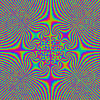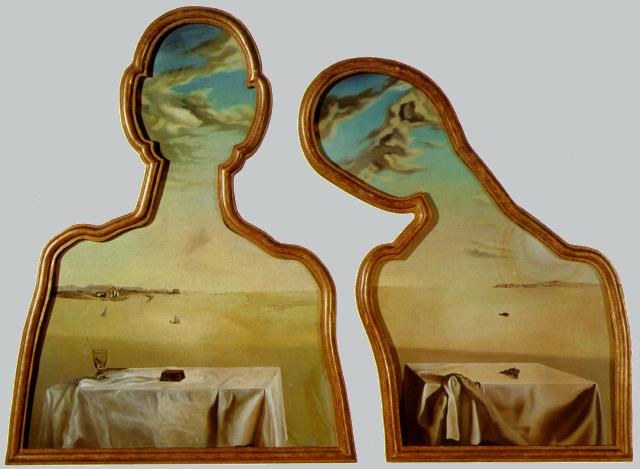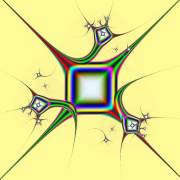I ask myself what’s the deep need of lifelogging, the need for recording everything that happens in our life. Apart from the practical reasons to have such lifeloggings, I suspect it reflects on a different level a more spiritual, evolutionary need having to do with the desire to freeze certain life moments in order to be fully aware of them in our consciousness, in order to participate fully and deeply in the flow of life.
 [en]
[en]
What's the deep need for recording everything that happens in our life? The promises of lifelogging.
I remember in the early 80's I was standing outside an ethnic restaurant in Milan with friends and we met a very young man, no older than ourselves. He told me that he had installed a tape recorder on his "500", a very small and cute Italian car. Any time he started the engine, the tape recorder automatically switched on so he could record conversations with his passengers and later listen to them.
His goal was to listen to himself talking later on. This guy was a nice and interesting character, and genuinely interested in knowing the different parts of himself, he wasn't a controlling paranoid personality. "One, No one and One Hundred Thousand" as Pirandello say. We are One for us, ultimately No one, but One Hundred Thousand for every different person we meet.
During the 80's some people in the alternative scene/culture were looking at the first video recording technologies as something that could bring more awareness in people's consciousness, as it were a Gurdjieffian continuous remembrance of ourselves. Now technology has evolved a lot more and Kevin Kelly writes about Lifelogging:
The goal of lifelogging: to record and archive all information in one’s life. This includes all text, all visual information, all audio, all media activity, as well as all biological data from sensors on one’s body. The information would be archived for the benefit of the lifelogger, and shared with others in various degrees as controlled by him/her.
Kevin Kelly is brilliant in forecasting the evolution of technology, but his analysis don't focus especially on the other half of the story: the impact of technologies on the soul. His classic book is Out of Control, that I published into Italian in the 90's.
First I ask myself what's the deep need for recording everything that happens in our life. Apart from the practical reasons to have such lifeloggings, I suspect it reflects on a different level a more spiritual, evolutionary need having to do with the desire to freeze certain life moments in order to be fully aware of them in our consciousness, in order to participate fully and deeply in the flow of life.
[/en][it]
Qual è il bisogno profondo di registrare tutto ciò che avviene nella nostra vita? Le promesse del lifelogging.
Mi ricordo che all'inizio degli anni 80 ero fuori da un ristorante etnico a Milano con alcuni amici, dove abbiamo conosciuto un ragazzo della nostra età. Mi disse che aveva installato un registratore sulla sua 500, di modo che ogni volta che accendeva il quadro il registratore si attivava automaticamente per registrare le conversazione con i suoi passeggeri. In questo modo poteva ascoltare di nuovo se stesso conversando in un momento successivo.
Era un tipo simpatico ed interessante, e realmente interessato a conoscere le diverse parti di se stesso, non si trattava di una personalità paranoica controllante. "Uno, Nessuno, Centomila" come scriveva Pirandello. Siamo Uno per noi stessi, in ultima analisi Nessuno, ma Centomila per ogni diversa persona che incontriamo.
In quegli anni 80 alcune persone della cultura alternativa consideravano le prime tecnologie di videoregistrazione come qualcosa che avrebbe potuto portare più consapevolezza nella coscienza delle persone, come se fosse stato un ricordo di sè alla Gurdjieff. Ora la tecnologia è molto più evoluta e Kevin Kelly scrive del Lifelogging (lo traduco dall'inglese):
Lo scopo del lifelogging: registrare e archiviare tutte le informazione della vita di una persona. Queste comprendono tutti i testi, tutte le informazioni visive, tutte le attività di ogni media, e anche tutti i dati biologici da sensori posti nel corpo. Queste informazioni verrebbero archiviate per il beneficio del lifelogger e condivise con altri a diversi livelli a scelta del lifelogger.
Kevin Kelly è brillante nel predire l'evoluzione della tecnologia, ma spesso le sue analisi non si focalizzano in modo particolare verso l'altra metà della storia: l'impatto della tecnologia sull'anima. Il suo testo classico è Out of Control, che ho pubblicato in Italiano quando ero editore di Apogeo/Urra.
Mi chiedo innanzitutto quale sia il bisogno profondo di registrare tutto ciò che avviene nella nostra vita. A parte le ragioni prettamente pratiche nel possedere un lifelogging, sento che questo bisogno riflette a un diverso livello un bisogno di carattere più evolutivo e spirituale: il desiderio di fermare alcuni momenti della vita per averne piena consapevolezza nella nostra coscienza, per poter partecipare in pieno e in profondità al flusso della vita.
[/it] Leggi tutto “Lifelogging”
 [en]
[en]






